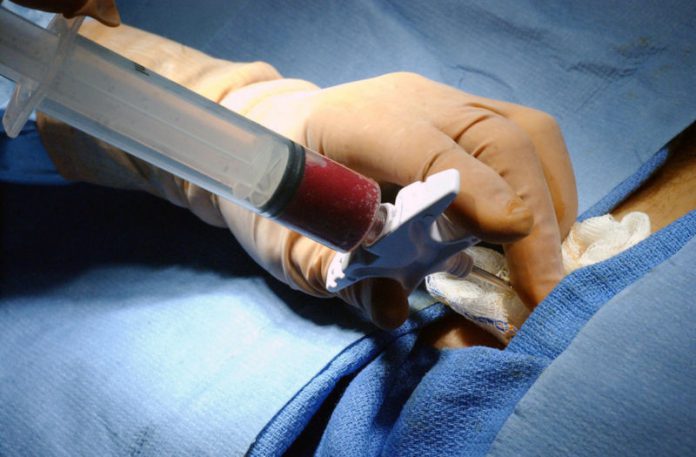Macau (MNA) – A haematology expert has told Macau News Agency (MNA) that he does not understand why a centre for the transplanting of umbilical cord blood stem cells has still not been established in the Macau SAR, given the considerable positive medical uses of such treatments and the simplicity of modern transplant procedure.
In a recent response to MNA, the Macau Health Bureau (SS) said that currently no hospital in the city performs bone marrow / stem cell transplants or stem cell blood treatment.
“In Macau, surprisingly, there are no transplant procedures, not just umbilical cord transplants but for patients of many blood diseases like leukemia or plastic anemia who require stem cell transplants,” Dr. Gregory Cheng of the Macau University of Science and Technology (MUST) Faculty of Health Sciences told MNA.
The medical expert added it is a “pity” that the government has to send local patients to Hong Kong, where transplants can be performed in either public or private recognised hospitals, adding that the fact that these patients were sent to the neighbouring SAR proves that the MSAR Government recognises the benefits of these transplants.
“Umbilical cord blood transplant has been a proven procedure in many parts of the world and it has been proved successful in the treatment of many haematological diseases like leukaemia, lymphomas or anemia,” Dr. Cheng said.
“Up to now, worldwide, there are over 40,000 cases of umbilical cord blood transplants performed and about half or more have benefited or been cured of their disease as a result of the transplants. So there is no doubt umbilical cord blood transplants is useful with the proper indications,” he added.
Dr. Cheng believes transplants can be “quite labour intensive” thus they should be performed in a local public hospital, adding that today the procedures pioneered 30 years ago are “very simple.”
A blood issue
The SS also told MNA it had considered private umbilical blood bank services as having no ‘therapeutic use,’ stating that the medical community agreed transplants from unrelated donors were more beneficial than autologous transplantation.
According to Dr. Cheng, patients who have either no siblings or non-compatible siblings for transplants require an alternative source of stem cells, with the Red Cross having established a registry for voluntary bone marrow donations that can provide a possible match.
The medical expert says that due to the difficulty of finding a perfect match from an unrelated donor’s umbilical cord blood donations can become an alternative source, since the risk of rejection or of the transplant stem cells mounting a severe attack on the host is considerably less.
However, he believes that the main issue is doubt about the quality of blood storage by private bank enterprises.
“There is a concern in terms of the standards of private blood bank companies, whether the cord blood units are properly stored or if anything happens during storage they will dispose of it or let the parents know, or wether they have performed all the quality assurance tests,” he said.
“Most companies say they possess accreditation and have been inspected, but there’s no 100 per cent guarantee about the quality of the stored product unlike the very strict standards of the Red Cross.”
[Edited by Sheyla Zandonai]




















